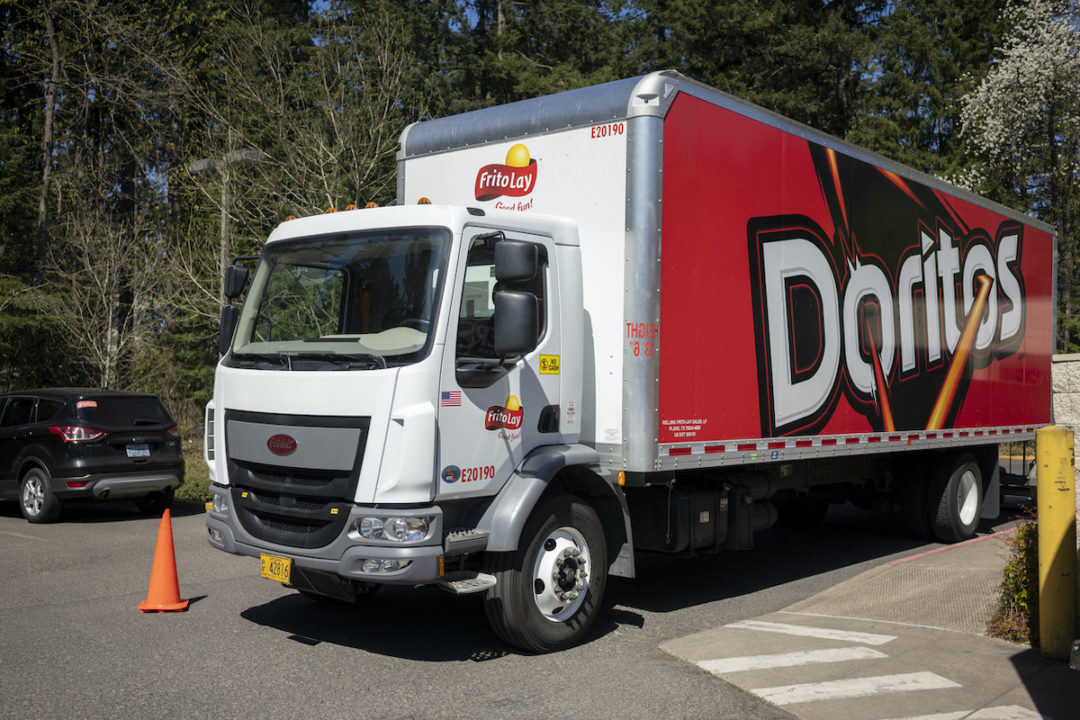
Visit Our Sponsors |
|
|
|
|
|
|
|
|
|
|
|
|
|
|
|
|
|
|
|
|
|
|
|
|
|
|
|
|
|
|
|
|
|
|
|
|
|
|

Climate change isn't just doing irreparable damage to the planet; it has begun to hinder global food and beverage supply chains. In fact, climate change could lead to an end to some of our favorite drinks and snacks, such as Doritos.
That message was delivered by Claudia Clemens, senior director analyst with Gartner, at the consultancy's recent Supply Chain Symposium/XPO in Orlando, Florida.
Gartner projects that climate change will drive a threefold increase in supply chain disruptions by 2026. Among the products most likely to be impacted, Clemens noted, are the four main ingredients that go into making Doritos: corn, sunflower oil, dairy and salt.
Corn
According to the USDA, Politico and Farm Journal, a third of the world’s corn supply is grown in drought zones.
Clemens said more than 75% of the global corn supply is grown in just four places: China, the U.S., Brazil and Europe. The amount grown in areas that suffer from drought conditions ranged from 30% (Brazil) to 64% in the U.S. Drought-prone regions often yield less corn than expected, resulting in a drop in the global availability of corn, which causes price increases for the vegetable. From 2021 to 2022, the price of corn increased by 36%, jumping an additional 27% to 2023.
Due to such supply constraints, Gartner predicts global corn production will fall by 5% year-on-year in 2023.
Sunflower Oil
The global sunflower oil supply chain has been negatively impacted by the ongoing war between Russia and Ukraine. Some 75% of all sunflowers were grown in Ukraine and Russia before Russia invaded Ukraine in March of 2022. Now, the share of global sunflower production between those two countries has fallen to 58%.
Other regions — such as China, the U.S., Europe and Brazil — have attempted to plant more sunflowers (again in drought zones) to offset this production drop-off, but Clemens said those efforts were unsuccessful, causing the price of sunflower oil to increase by 37% from 2022 to 2023.
Gartner expects global sunflower oil production to decline by 12% year-on-year in 2023.
The trend is having a ripple effect on the supply of other oils as well. Clemens said demand for canola and soy oils has recently skyrocketed, driving up prices. Demands for palm oil have also increased because of constraints on the global sunflower oil supply chain, leading to more deforestation and potential human rights risks in palm oil-producing countries.
“While we might think of it as an isolated issue, it has had a much broader impact across the entire oil industry, regardless of the type of vegetable,” she said.
Dairy
Clemens said the perishability of milk makes it a uniquely localized commodity, presenting its own challenges. According to data from Ceres, the USDA and FAO, less than 10% of the world’s milk comes from global trade. This puts milk “at the mercy” of local climates because there are limited sourcing options.
Clemens also explained that dairy supply chains have been hurt by droughts. In the U.S. alone, almost half of all dairy cows are being raised in drought zones, which makes it more difficult to keep them healthy enough to continue producing milk. This leads to a decrease in milk production as well as an increase in labor costs.
Currently, the cost of dairy is the highest it has been in 40 years. And the price of milk will likely continue to rise, as dairy demands are expected to grow by 60% over the next 10 years, according to Gartner.
Salt
While salt isn't directly impacted by drought, Clemens described it as a “companion ingredient” because it's used in the production of dairy products as well as baked goods. Increased consumption worldwide of processed foods, which use salt as a preservative, has caused a ripple effect that has increased the overall demand for salt.
At the same time, there have been issues with the world’s salt supply, caused by disruptions brought on by mergers and acquisitions, labor shortages and COVID-19 shutdowns within China — this last factor being particularly significant, because 22% of the global salt supply comes from China, according to Statista.
Minimizing the Impact of Climate Change
Clemens laid out a four-step process dubbed CHIP — for Climate Advocacy, Handle Disruption, Involve Others, and Preventive Planning —to mitigate the impact of climate change, and head off a world without Doritos.
Advocacy is key, she said. Supply chain professionals need to educate themselves on how climate change impacts their industries. They can then invest in new technologies to improve forecasting and planning. They can also provide more support for sustainable metrics by implementing preventive measures and diversifying their growing practices.
Involving other supply chain stakeholders is another good way to lessen the impact of climate change. Gartner recommends that companies collaborate with suppliers and customers in order to launch new problem-solving initiatives.
Lastly, suppliers must take a proactive approach with preventive planning. They can do this by creating risk models, collaborating on joint innovations, and emphasizing metrics such as recovery time and the probability of achieving assigned goals in a timely fashion.
Adoption of the CHIP process is key to tackling climate change, Clemens said. "And we won’t have to envision a world without Doritos.”
RELATED CONTENT
RELATED VIDEOS
Timely, incisive articles delivered directly to your inbox.

